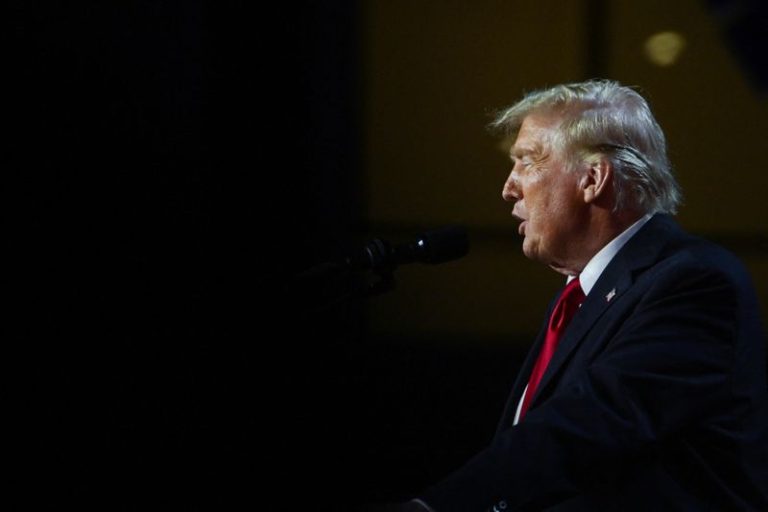By Selena Li, Scott Murdoch and Kane Wu
HONG KONG/SYDNEY (Reuters) – More U.S. financial firms may withdraw from China, spin off local units to minimize risks or pause expansion plans amid concerns over geopolitical tensions under President Donald Trump , said industry executives and analysts.
Mainland China was a lucrative market for Wall Street investment banks and major U.S. asset managers to expand in the decade before the pandemic, as the world’s second-largest economy grew. double-digit economy.
However, these companies now face risks of even greater trade tensions between Beijing and Washington under a new US administration, with their Chinese units already reeling from faltering economic growth and regulatory changes that have hit their revenues.
Trump, who won back the White House with a landslide victory on Wednesday, has proposed tariffs on Chinese imports above 60% and an end to China’s most favored nation trading status.
There are also concerns about steps he might take to make it more difficult for U.S. capital to flow into China and for U.S. financial firms to work with some Chinese companies, analysts said.
Joe Jelinek, research director at Singapore-based consultancy Kapronasia, said Trump would likely take a tougher stance on China, increasing regulatory risks for U.S. financial firms operating there.
New or increased tariffs and capital restrictions could discourage Wall Street firms from setting up operations in China as they face increased scrutiny and possible compliance issues, he said.
“Rather than Beijing shutting down, it is likely that U.S. companies themselves will reconsider their China strategies to mitigate these risks,” Jelinek said, adding that this could lead to a withdrawal or delay of investments.
A senior executive at a China-licensed entity of a major U.S. financial firm told Reuters his company conducted several rounds of « risk management meetings » at headquarters in the months leading up to the election.
Following Trump’s return to the White House, the company is now working to make its China operations an independent, « self-sufficient » operating unit, the executive said, declining to be named due to the sensitivity of the issue .
“Trump’s return to the White House will be a very bumpy road for American financial companies doing business in China,” the executive said. “‘De-Americanization’ has now become a guiding principle.”
RETHINKING STRATEGY
Some Wall Street firms have already reduced their footprint in China, as a slowing economy and tighter regulatory scrutiny of corporate deals and fundraising over the past two years have dampened the company’s revenue potential. walk.



